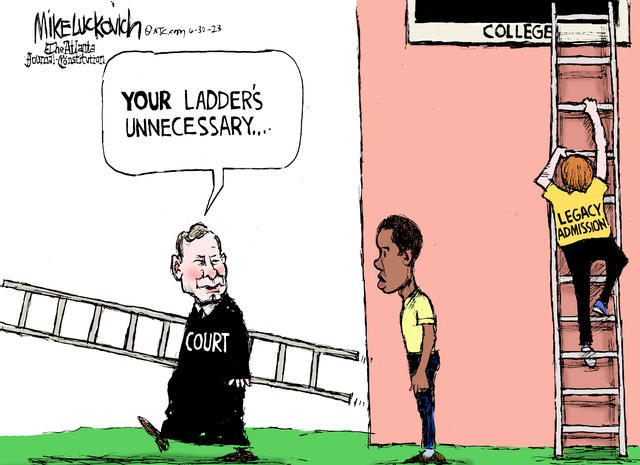
In 2017, the NY Times published a shocking article. It showed that dozens of elite US colleges admitted more students from top 1% income families than they admitted from the entire bottom 60%.
We have a similar imbalance today. Due to its large endowment, Harvard’s generous financial aid means that it is free for students with family incomes of less than $85,000. You might think that it would have plenty of low-income students. But a recent Harvard Crimson article reported that 67% of Harvard’s incoming class was from the top 20% of income, vs. just 4.5% from the bottom 20%.
Does anyone really believe academic talent is this concentrated? Of course not. So why does it happen? The answer is that talent cannot be directly measured, so instead colleges admit based upon achievement as a proxy for talent. But a student’s ability to achieve is highly affected by the family’s income and wealth.
Let’s ignore the relatively few families that essentially buy a seat through “donations”. After them are a large group of families sufficiently well off to fund their children to become both academically strong and develop a rich set of extracurriculars. Specifically, wealth allows:
- Better private schools, or living in expensive towns with great public schools
- Tutors in subjects where the children struggle
- Expensive sports favored by elite colleges, such as fencing or lacrosse
- Expensive summer academic or athletic activities
- Full tuition at expensive colleges, something out of reach for most people
- Expensive college counseling services that guide students, sometimes from 8th grade onwards.
It’s not a fair playing field at all, nor could I attempt to fix all of them.
But I thought I could make a significant dent in the last one, by publishing for free the type of college counseling advice that most people cannot afford. If you site helps you, please let me know via a comment, or send me a message on the Contact page.




